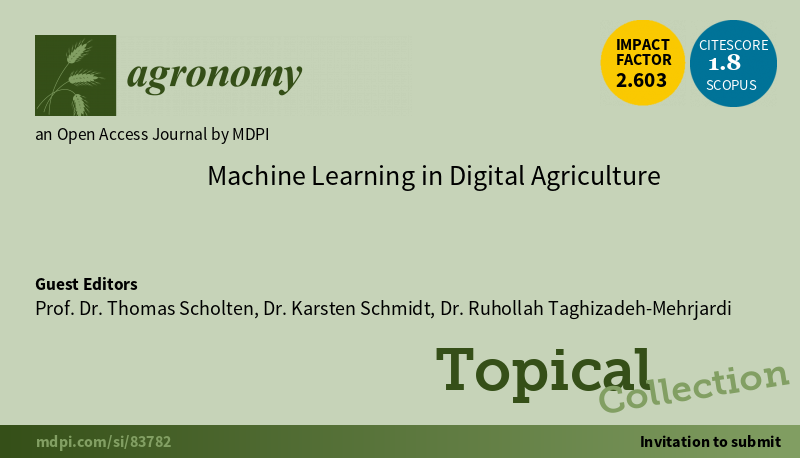21.04.2021
Special Issue on "Machine Learning in Digital Agriculture" - open for paper submission
The journal Agronomy (ISSN 2073-4395, IF 2.603) is currently opening a Special Issue "Machine Learning in Digital Agriculture". Cluster member Prof. Dr. Thomas Scholten together with Dr. Karsten Schmidt and Dr. Ruhollah Taghizadeh-Mehrjardi are serving as Guest Editors for this issue.
Agriculture plays an important role in sustaining all human activities. The rapid increase in the world's population will further exacerbate food, water, and energy challenges. Digital agriculture - with precision farming, data analytics, machine learning, and artificial intelligence - has the potential to address the challenges of sustainable agricultural use. Machine learning - the scientific field that gives machines the ability to learn without being strictly programmed - has the potential to make agriculture more efficient and effective. The increasing amount of sophisticated data (e.g. remote sensing and proximal sensing) makes it possible to bridge the gap between data and decisions within agricultural planning. On-demand representative sampling and modeling of useful soil information in an unprecedented resolution leads to an improvement in the decision-making processes of, for example, liming, irrigation, fertilization, higher productivity, reduced waste in food, and biofuel production. Additionally, sustainable land management practices are only as good as the data they are made of, and they help to minimize negative consequences such as soil erosion, soil compaction, and organic carbon and biodiversity loss. In the last few years, different machine learning techniques, different geophysical sensor platforms, as well as newly available satellite data have been tested and applied in precision agriculture.
This Issue on Machine Learning in Digital Agriculture provides international coverage of advances in the development and application of machine learning for solving problems in agricultural disciplines such as soil and water management. Novel methods, new applications, comparative analyses of models, case studies, and state-of-the-art review papers on topics pertaining to advances in the use of machine learning in agriculture are particularly welcomed.
For further reading, please follow the link:
https://www.mdpi.com/journal/agronomy/special_issues/Machine-Digital

